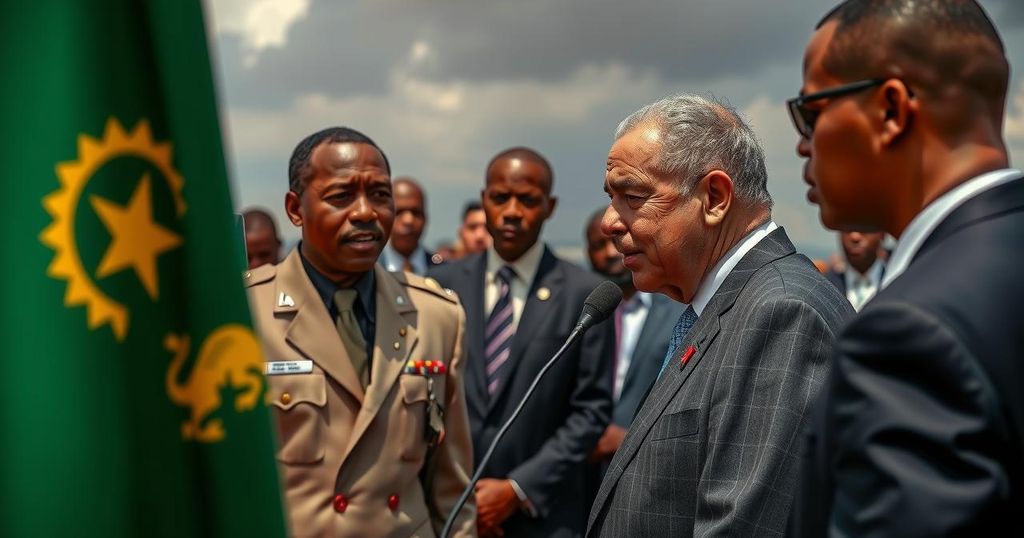U.S. President Joe Biden made a historic visit to Angola, emphasizing a strong partnership with Africa. He announced a $3 billion investment in the Lobito Corridor project to aid energy and clean technology. Biden’s trip also reflects on the shared legacy of slavery and includes meetings with African leaders to boost collaboration in energy production.
On December 3, 2024, U.S. President Joe Biden embarked on a historic visit to Angola, making him the first sitting president to do so. During this visit, he emphasized the United States’ commitment to fostering a robust partnership with Africa, stating, “The United States is all in on Africa.” This was made evident during his discussions with Angolan President João Lourenço, who characterized the visit as a pivotal moment in U.S.-Angola relations.
President Biden announced a significant investment of $3 billion towards the redevelopment of the Lobito Corridor, a vital railway project that connects Angola with Zambia and the Democratic Republic of Congo. This initiative aims to facilitate the export of essential raw materials necessary for battery manufacturing and clean energy technologies. The U.S. leader is set to visit the Lobito area on Wednesday to further inspect the project’s impact.
In the context of prevailing geopolitical tensions, particularly with China, which has substantial investments in Africa’s mining and infrastructure, this trip highlights the U.S. efforts to strengthen economic ties with Africa amidst a backdrop of competitive dynamics. Just a day prior, China imposed restrictions on the export of critical materials to the U.S., following U.S. sanctions on Chinese technology firms.
The Lobito Corridor project has also garnered support from various international partners, including the European Union, the G7, private consortia, and African financial institutions. National Security Council spokesperson John Kirby emphasized that while the full realization of the project is projected to take several years, demonstrable progress has already been achieved.
In addition to economic discussions, President Biden’s itinerary includes a visit to Angola’s National Slavery Museum, located in the Capela da Casa Grande. This visit symbolizes a reflection on the shared history of slavery between the United States and Angola. During his visit, he met with Wanda Tucker, a descendant of William Tucker, the first enslaved child born on American soil, whose ancestors were brought from Angola in 1619.
Furthermore, President Biden engaged with African business leaders to discuss public-private partnerships aimed at enhancing energy production, a priority echoed by President Lourenço during their meeting.
President Biden’s visit to Angola is significant as it marks the first by a sitting U.S. president, highlighting a renewed focus on enhancing U.S.-Africa relations. This visit comes at a time when geopolitical competition between the U.S. and China in Africa is intensifying, particularly in sectors such as mining and infrastructure development. The Lobito Corridor project is emblematic of the U.S. commitment to invest in Africa’s infrastructure, especially in the context of clean energy. Additionally, Biden’s acknowledgment of the historical ties related to slavery aims to forge deeper connections with African nations and their diasporas in the U.S.
In conclusion, President Biden’s visit to Angola signifies a crucial step in reinforcing U.S.-Africa relations, primarily through economic investments and collaborative infrastructure projects. By prioritizing initiatives like the Lobito Corridor and engaging with both government officials and descendants of critical historical figures, the Biden administration seeks to facilitate a multifaceted partnership that recognizes both the historical context and future potential of U.S.-Africa relations. As the U.S. aims to assert its presence in Africa amidst rising Chinese influence, this visit exemplifies its commitment to the continent’s development.
Original Source: indianexpress.com






